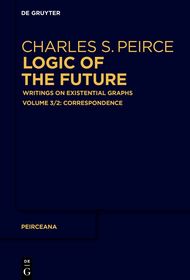
-
5% KEDVEZMÉNY?
- A kedvezmény csak az 'Értesítés a kedvenc témákról' hírlevelünk címzettjeinek rendeléseire érvényes.
- Kiadói listaár EUR 129.95
-
53 896 Ft (51 330 Ft + 5% áfa)
Az ár azért becsült, mert a rendelés pillanatában nem lehet pontosan tudni, hogy a beérkezéskor milyen lesz a forint árfolyama az adott termék eredeti devizájához képest. Ha a forint romlana, kissé többet, ha javulna, kissé kevesebbet kell majd fizetnie.
- Kedvezmény(ek) 5% (cc. 2 695 Ft off)
- Kedvezményes ár 51 202 Ft (48 764 Ft + 5% áfa)
Iratkozzon fel most és részesüljön kedvezőbb árainkból!
Feliratkozom
53 896 Ft

Beszerezhetőség
Még nem jelent meg, de rendelhető. A megjelenéstől számított néhány héten belül megérkezik.
Why don't you give exact delivery time?
A beszerzés időigényét az eddigi tapasztalatokra alapozva adjuk meg. Azért becsült, mert a terméket külföldről hozzuk be, így a kiadó kiszolgálásának pillanatnyi gyorsaságától is függ. A megadottnál gyorsabb és lassabb szállítás is elképzelhető, de mindent megteszünk, hogy Ön a lehető leghamarabb jusson hozzá a termékhez.
A termék adatai:
- Kiadás sorszáma és címe Volume 3,2
- Kiadás sorszáma 1
- Kiadó De Gruyter
- Megjelenés dátuma 2025. december 14.
- ISBN 9783110765625
- Kötéstípus Keménykötés
- Terjedelem500 oldal
- Méret 230x155 mm
- Nyelv angol
- Illusztrációk 6 Illustrations, black & white; 110 Line drawings, black & white 700
Kategóriák
Rövid leírás:
Peirceana provides a forum for the best current work on Peirce worldwide. Besides monographs, the series publishes thematically unified anthologies and edited volumes with a defined topical focus and untranslated English selections of Peirce’s writings.
TöbbHosszú leírás:
In three comprehensive volumes divided into five books, Logic of the Future presents a full panorama of Charles S. Peirce's important late writings. Among the most influential American thinkers, Peirce took his existential graphs to be his greatest contribution to human thought. The manuscripts and letters from 1895–1913, most of which are published here for the first time, testify the richness and open-endedness of his theory of logic and its applications. They also invite us to reconsider our ordinary conceptions of reasoning as well as the conventional stories told about the evolution of modern logic.
Volume 3/2 of the series contains a comprehensive selection of letters from 1898–1913 exchanged between Peirce and his colleagues and collaborators on the logic and philosophy of existential graphs.
Több



